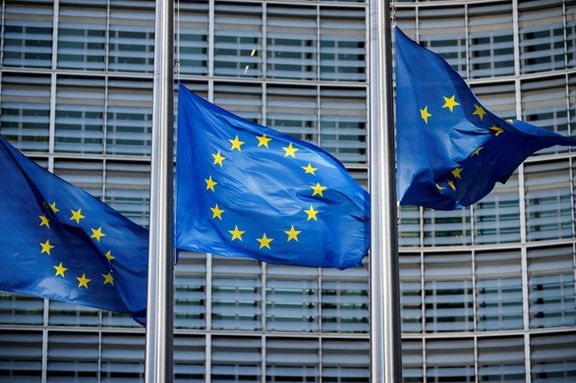European Parliament calls to end Iran's 'hostage diplomacy'

The European Parliament has adopted a motion for a resolution condemning Iran’s detention of European Union citizens, labelling the practice as “hostage diplomacy.”

The European Parliament has adopted a motion for a resolution condemning Iran’s detention of European Union citizens, labelling the practice as “hostage diplomacy.”
The resolution, details of which were released on Wednesday, also highlights Iran’s broader human rights violations, calls for the immediate release of detained EU nationals and for a stronger coordinated diplomatic efforts by EU member states.
In its resolution, the European Parliament “strongly condemns Iran’s use of hostage diplomacy” and calls for the immediate and safe release of all EU citizens held in the country, including Olivier Grondeau, Cécile Kohler, Jacques Paris, and Ahmadreza Djalali.
The resolution also addresses the escalating use of the death penalty in Iran, particularly in cases involving activists and minorities, with Iran reaching record highs in excess of 900 last year.
The Parliament expressed its “strong condemnation of the death sentence against Pakhshan Azizi and Varishe Moradi” and demanded their “immediate and unconditional release.”
The motion also calls on the EU Council to take decisive action, including designating the Islamic Revolutionary Guard Corps (IRGC) as a terrorist organization and extending sanctions to individuals responsible for human rights abuses. It reaffirms the Parliament’s opposition to the death penalty and urges Iran to impose an immediate moratorium on its use.
In addition, the resolution reflects growing support for Iranian civil society and the ongoing “Woman, Life, Freedom” movement, underscoring the Parliament’s solidarity with the Iranian people.
“The European Parliament reiterates its full support for Iranian human rights defenders,” the text reads, urging Member States to provide greater financial and diplomatic backing to activists working under extreme pressure.
The resolution will be forwarded to EU institutions and Iranian authorities, including the Supreme Leader and the parliament, as part of ongoing efforts to address human rights concerns in the region.
The motion comes amid growing international scrutiny of Iran’s use of foreign and dual nationals as leverage in diplomatic negotiations.
Earlier this month, French citizen Olivier Grondeau, held in Iran for over two years on espionage charges, publicly revealed his identity and described his ordeal in a phone interview aired on French radio.
Rights groups and foreign governments have denounced such detentions as a form of “hostage diplomacy.”
Also this month, an Italian journalist was released from Iranian custody, reportedly as part of an effort to pressure Italy into freeing an Iranian detained on terrorism charges.
It is the latest in a series of cases spanning decades. Last year, a Swedish EU representative was released from Iran in exchange for the release of a former Iranian official in prison in Sweden on charges of crimes against humanity.